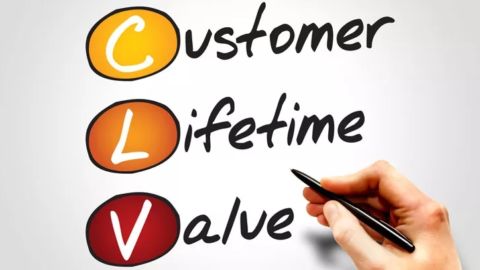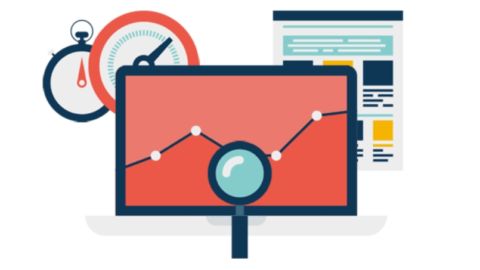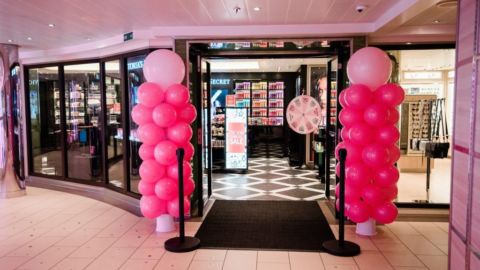Two weeks ago when I attended Salesforce Connections in Chicago, one major theme captured my attention: it is vital to track, analyze and understand shopper data. “Data is the bedrock,” noted Heike Young, Manager of Industry Strategy and Insights at Salesforce, in a panel discussion that continually emphasized why today’s retailers won’t succeed without knowing the customer’s every move.
It appears that successful brands are getting this message. Elite performers — brand leaders that reported a revenue increase of at least 10% in the past fiscal year — focus on data at nearly 2X higher rates than underperformers across all areas, on average, according to the Salesforce-Deloitte Consumer Experience Report.
As more retailers seek to achieve that elusive goal of putting the customer at the center of every interaction, it’s no doubt data is crucial — and these merchants are realizing it. In fact, there will be a 3X increase in demand for data scientists over the next three years, according to Rob Garf, VP of Industry Strategy and Insights at Salesforce. H&M is one of the latest examples of a retailer increasing its reliance on data scientists, working with 200 (both internally and externally) to diversify the merchandise in individual stores.
But despite this influx of human intelligence, data scientists won’t be the panacea for retailers, according to Garf. It all has to be driven with a direct purpose, he said. Retailers may vary in how they define the role of their data management capabilities, but they must build out a clear strategy of what they’re looking to find out about the consumer.
One of the most-referenced statistics throughout the event highlighted the challenges in delivering this strategy. In total, the average brand has 39 different front-end, customer-facing systems working for them at once, ranging from POS, mobile, call center, e-Commerce, email marketing, social and content management. Most retailers are still in the middle stages of adopting a single platform to merge this disparate data under one roof: 31% are either creating a formal plan, developing a business case or seeking budget. Only 11% of 550 brands studied said they operated on a unified platform.
With Google Integration, MuleSoft Acquisition, Salesforce Sets Out To Conquer Customer Engagement
Platform unification is where Salesforce enters the picture. The company spent a lot of time during the event sharing its new slew of tools designed to further enrich the customer engagement process. Salesforce debuted a new solution that combines the company’s Marketing Cloud platform with Google Analytics 360, allowing users to leverage campaign data for tailored audiences and unlock deeper customer insights.
The cloud commerce giant also unveiled its Integration Studio, which consists of three platforms: The Integration Platform, Integration Builder and Integration Experiences. The platform is essentially the offspring of Salesforce and its recently acquired $6.5 billion subsidiary MuleSoft, and is designed to deliver personalized experiences across channels (such as email, social, mobile, digital ads or in-store kiosks) in response to real-time signals from the customer’s actions.
Experiences come in the form of personalized offers — such as a discount for shoes because a pair of shoes were placed in a shopping cart on a web site but not purchased — that can be made through any channel supported by the Salesforce platform. These offers can be automatically coordinated with any ongoing campaigns, such as an email blast.
The addition of the Integration Studio on top of the partnership with Google Analytics is a clear signal that Salesforce is positioning itself as a do-it-all solution for all cloud-based personalization needs — a development that would take the company well beyond its CRM roots.
Top Trailblazers Include Lacoste, Samsonite
During the Commerce Cloud Keynote, Salesforce execs highlighted numerous Trailblazers — members of which learn the Salesforce Commerce Cloud program through a series of training courses. Trailblazers such as Samsonite, Milk Makeup, Lacoste and Asics Digital also have improved the customer experience and used data as a competitive advantage via the platform.
In a video played during the keynote, members of the Lacoste team shared that approximately 75% of its e-Commerce strategy is built on Salesforce, while 8% of the company’s revenue is driven by an in-store app driven by store associates.
“We can leverage great functionalities like the universal cart, and we offer return in-stores anywhere,” said Olivier Peil, Group Omnichannel Program Manager at Lacoste in the video. “We have a customized polo [shirt] and we use Salesforce tools [to connect] all the touch points. I think we’re the only company to build an entire polo on what the customer has chosen — color, trims, the croc. It’s a unique product. Within an hour or so, it’s made in a French factory and directly sent to the customer, so it’s a great competitive advantage for Salesforce.”













